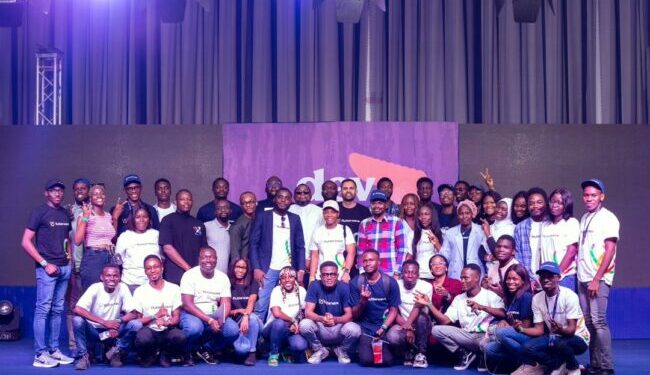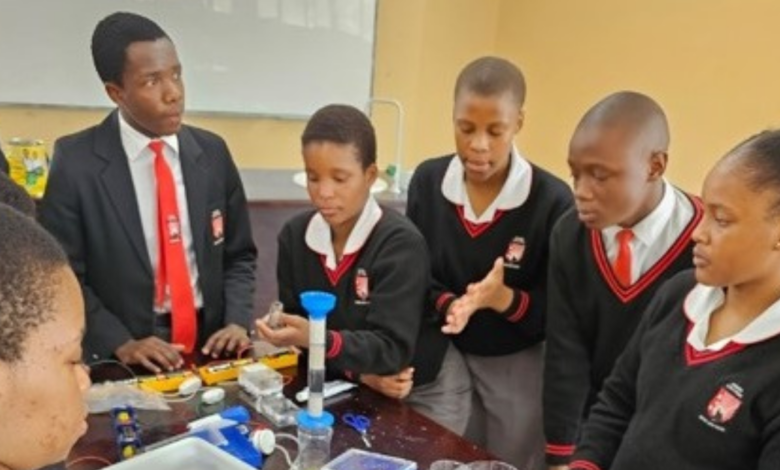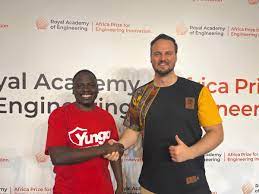Flutterwave, Africa’s foremost payments technology company, has revealed its plans to launch an inaugural Engineering Mobility Programme in India in collaboration with Capgemini, a global leader in business and technology transformation services.
Under this innovative initiative, Flutterwave’s engineering teams based in Nigeria and the United Kingdom will join forces with Capgemini’s extensive technology talent pool in Bangalore, India. The collaboration aims to facilitate the exchange of industry best practices and foster the growth of the next-generation workforce in the field of technology and engineering.
Read also: Flutterwave launches Swap, Nigerian forex platform
Enhancing Product Delivery and Strategy
This partnership will not only promote knowledge sharing but will also see Capgemini leverage its deep domain expertise to enhance Flutterwave’s product delivery capabilities, particularly through the integration of a new cloud service provider. Furthermore, Capgemini will play a pivotal role in shaping Flutterwave’s technology strategy by defining a clear target state and an elaborate roadmap for seamless implementation.
Empowering Engineers for Innovation
Flutterwave’s Chief Technology Officer, Gurbhej Dhillon, expressed his excitement about the Engineering Mobility Programme, emphasizing its significance beyond collaboration with a global tech leader like Capgemini. He highlighted the program’s focus on diversity, inclusivity, and the free flow of ideas, which are essential drivers of continuous innovation.
Dhillon stated, “We cannot wait to see the incredible solutions this programme will birth. I’m looking forward to seeing how our engineers will take their learnings back home and share their experiences with their teams as they continue building payment solutions for the emerging economies of Africa and beyond.”
Mansi Babyloni, Chief People Officer at Flutterwave, underscored the company’s commitment to empowering its employees and nurturing talent. She stated that the Engineering Mobility Programme reflects their dedication to responding to talent needs, driving improvements, and investing in their people. Babyloni also emphasized the value of such programs in shaping careers and expressed her excitement about the positive impact it will have on Flutterwave’s engineers.
Capgemini’s Perspective
Sujit Kini, Global Account Executive, Financial Services at Capgemini, highlighted their long history of leveraging technology to deliver business value and innovation worldwide. He expressed Capgemini’s enthusiasm for collaborating with Flutterwave on this talent development program, especially in the rapidly evolving payments landscape.
Flutterwave’s Continued Growth and Innovation
Bode Abifarin, Chief Operating Officer at Flutterwave, reflected on the company’s remarkable journey of growth and innovation since its inception in 2016. He cited the significant increase in the usage of their remittance product, Send App by Flutterwave, and the offline solution, Flutterwave POS, over the past year as indicators of their success. Abifarin stressed that their engineering team and infrastructure have played a pivotal role in their achievements, and with the Engineering Mobility Programme, they aim to scale their team further to meet the demands of expanding operations and partnerships.
Flutterwave’s Engineering Mobility Programme stands as a testament to the company’s commitment to nurturing talent, fostering innovation, and driving growth in the ever-evolving landscape of payment technology.
Read also: Nigerian Flutterwave enters the Indian market
More on Capgemini
Capgemini‘s technology expertise, coupled with their deep business acumen, extends far beyond mere business transformation and management. Their capabilities are instrumental in shaping a brighter future and fostering a more sustainable and inclusive world.
The company’s approach has always been that of a collaborative partner rather than a conventional service provider since their inception over 50 years ago. Comprising a diverse collective of nearly 350,000 strategic and technological experts spanning across more than 50 countries, they share a common passion—to unleash human potential through technology.
Capgemini harnesses the power of cloud computing, data analytics, artificial intelligence, connectivity, software solutions, digital engineering, and cutting-edge platforms to address a comprehensive spectrum of business requirements.
More on Flutterwave
Flutterwave operates in eight African nations, including Nigeria, Kenya, Uganda, Ghana, and South Africa, with its headquarters based in San Francisco, California. In 2021, the company secured an impressive $170 million in a Series C investment round.
What sets Flutterwave apart is its innovative technology, which empowers businesses to tap into scalable opportunities, breaking free from geographical and currency constraints. The platform supports a diverse range of payment methods, from debit and credit cards to bank transfers, Mobile Money wallets, M-Pesa, Visa QR, American Express, and USSD.
Moreover, Flutterwave facilitates transactions in over 150 different currencies, including Naira, Dollars, Euro, Yuan, and Pounds. This capability enables businesses to overcome longstanding sales barriers, unlocking pathways to global expansion and prosperity.




